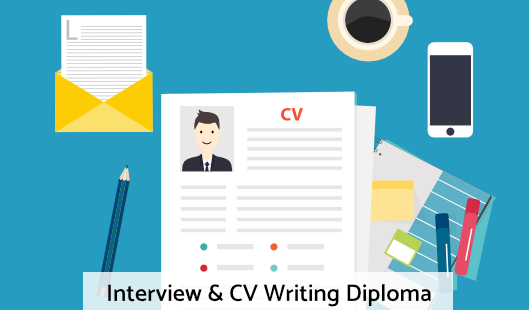Learning Blog
Why every educator should know how to spot the signs of Dyslexia
yslexia is really, really, common! As many as 1 in 20 people have some degree of dyslexia and whilst it is a lifelong problem, appropriate help can lessen the impact of this condition since it is what is known as a specific learning difficulty, which means that while people may have difficulty in getting to grips with reading and writing, overall intelligence isn’t affected.
In fact, some very famous and highly successful people in all walks of life have acknowledged that they have had difficulty. The list includes Richard Branson (entrepreneur) Steven Spielberg (Director), Jackie Stewart (World Champion racing driver) and Nicola Tesla (Engineer and inventor).
Whilst this list proves that Dyslexia does not always hold people back, for the majority, it can mean misery in school and limited opportunities to make the most of positive characteristics. As an educator, you will teach them and it is your responsibility to help them make the most of their abilities and overcome their barriers to learning.
What are the signs and symptoms of dyslexia?
As the name suggests dyslexia is a difficulty in decoding and working with words mostly in the written and printed form, although very young children may show signs of disordered speech such as a persistence in mixing up syllables of words long after their peers have managed to self-correct, for example “ephalant” for “elephant”. In very young children too they may have delayed speech and show less interest in learning their letters than other children of the same age and ability.
On starting school these difficulties will become more apparent with a persistent problem in confusing letters with similar shapes but different orientation: p,b,q,d are good examples of this. This will be accompanied by a slow learning of word names and difficulty reading or spelling words.
Most young children will learn words on flashcards relatively easily, a child with dyslexia will not. As a child grows their difficulties may cause them to lag behind their peers, and sometimes this gap will grow.
Difficulties in speed and accuracy of writing together with legibility are common. Some, but not all children with dyslexia will have difficulty reading (especially out loud) and decoding new and unfamiliar words using phonetics.
The skill which a person with dyslexia may struggle most with is phonological awareness.
This is the recognition that large words are made up of small subunits which are sounded out individually such as com-pu-ter.
They will have difficulty spotting where one phoneme starts and ends, and they will have difficulty sequencing too.
In more able children there will be a real gap between how they express themselves verbally and how they write. This won’t be as apparent in children who may come from a language-deprived home. Spelling too will be inconsistent and as what one educator described as “eclectic”. This is particularly frustrating for a teacher since they may never show signs of having learned how to spell a word despite it being corrected many times. Dyslexic people have difficulty learning the rules of spelling (such as they are) and applying them.
Why is the existence of dyslexia so often challenged?
Dyslexia is real, but the diagnosis of it is fraught with difficulty, especially as many people have to pay for it privately as schools will not take note of it (unless severe) under their SEN policy.
This of itself presents a problem since it is often seen as a middle class “disease”. Articulate and educated parents often are more likely to become concerned about educational difficulties their children may be experiencing even if it is just caused by lower overall ability in their child. For a child to have dyslexia it is the gap between their performance IQ and their verbal abilities which is key.
Without a full scale intelligence test a diagnosis of dyslexia on verbal ability alone may not be valid.
What can an educator do to support a person or child with dyslexia?
As with many difficulties, an adult with dyslexia may have developed strategies to deal with their difficulties. An educator’s job, therefore, is to help and support a person with dyslexia to achieve those strategies as efficiently as possible with minimum damage to their self-esteem.
- Computer mediated learning. There are lots of software programs designed to support literacy. Opportunities to have regular practice with these is useful; repetition works but it is better when it is fun.
- Use of computers and keyboards for written tasks. One of the most disheartening things which a person with dyslexia can suffer is to have done their best with a piece of work and to have it returned covered with teacher comments and instruction to copy it out again, only to make more mistakes. When work is important, an opportunity to type the work would enable effort to be concentrated where it needs to be and not on rote copying. Pride in work matters.
- Try to find alternatives from copying from the board. This is a particular difficulty for people with dyslexia. They can easily make errors. Sheets in front of them are better.
- Coloured overlays. Some people with dyslexia report that words dance about on paper when they are black on white. A coloured acetate overlay can help, as can differently coloured paper.
- Age appropriate reading materials. If you teach older children with significant reading difficulties avoid giving them texts aimed at lower age readers. Older readers need books about adventure, cars, Sci-Fi, which are like the ones their non-dyslexic peers are reading.
Using supportive strategies to support a person with dyslexia means that you can make a real difference to their lifelong learning journey!
If you wish to find out more about Dyslexia please take a look at our comprehensive online Dyslexia Awareness Diploma course
Learn with confidence...

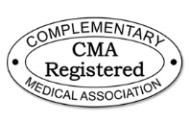

 RRP
$100
RRP
$100
Get a FREE Course
Tick this box to Sign up for our newsletter, and get access to the Interview Skills and CV Writing Certificate course for free! By signing up, you agree to our Privacy Notice & Cookie Policy and to receive marketing and related emails from academy+ brands. You can unsubscribe at any time.What our students say about us...
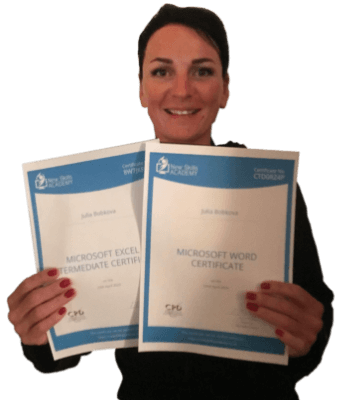
This is a great course for any level of knowledge. Very easy to navigate, great practical tasks and explanations are very clear. You can revise any module with no problem. The test wasn’t too hard if you completed every module. It may be handy to make some notes before you start. Overall I'm very happy with my choice. Thank you New skills for my New skills :)
Julia Bobkova

The course was clearly set out with helpful end of week tests which built my knowledge. Being dyslexic I found the course was set out in an easy to understand way. I was able to pass the test on my first attempt. The downloaded pdf are a useful resource that you can keep forever. Looking forward to the next course
Ross Dunsten

Wow what an incredible insight for the start of anyone's journey in property. This course gives you so much information and there are tests and questions on each of the modules. The course is very easy to follow and well laid out. You can actually make notes on the pages of each module using the notes tab! I am very excited to say that I passed and I only spent one week on this course. I will print all the PDF information and keep it in a file with my certificate. I feel very confident for my future plans now I have completed this course.
Nichola Anderson
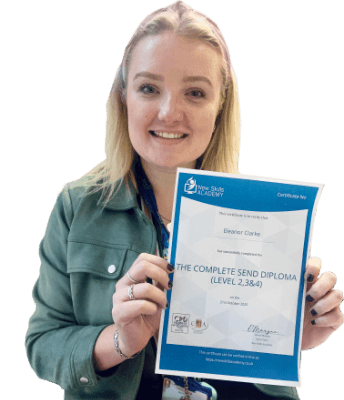
It was an eye opening course that was flexible and easy to access. I was able to complete it from the comfort of my own home whilst also having the tasks to complete which enabled me to check my knowledge. I know feel much more confident in my field of work and really enjoyed doing it.
Ellie Clarke

Omg im so excited, over joyed and all the good stuff that comes to mind! Wonderful experience doing lessons with New Skills Academy. I look foward to doing more courses with them. I hope this will encourage others to come on board and refresh your minds or to learn something new, it's a win win situation. I want to thank New Skills Academy so much for making this as simple as possible for me.
Shari Anderson
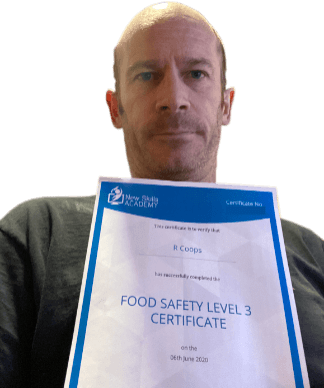
Yet another well laid out course. This is my 3rd course so far with New Skills Academy.
More than likely will be back for another one soon. This course was enjoyable to do, and I learnt a lot and passed first try. My certificate will be up on the wall soon.
Rob Coops

I found this course incredibly useful, as it provided me with practical knowledge which I can implement in my role as a Support Worker. The videos were clear and concise, and the downloadable worksheets reinforced what I had learned as I was able to put pen to paper. Overall, a fantastic course for a great price! I am looking forward to taking on my next one.
Teleisha Harley

Fantastic course! Well-presented and challenging with frequent assessments. I feel a serious sense of accomplishment having not studied for over 30 years! Videos that accompany each module are carefully thought out and informative. Am so impressed with this course, have now signed up for 3 other courses and recommending New Skills Academy to everyone!
Marva Hudson




